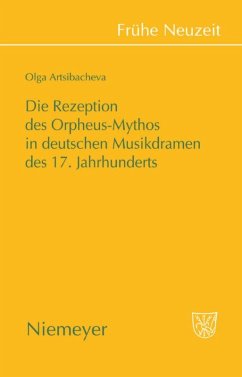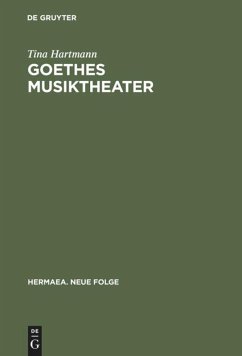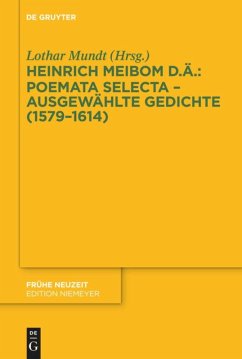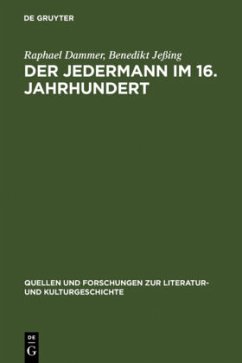
Die Rezeption des Orpheus-Mythos in deutschen Musikdramen des 17. Jahrhunderts

PAYBACK Punkte
0 °P sammeln!
The story of the divine singer who could tame wild animals and enchant inanimate nature, and who for love of his wife descended to the underworld, has exercised a never-ending fascination throughout all epochs. It is therefore scarcely surprising that the myth of Orpheus became a source of inspiration and his figure a leading character for the new genre of opera, which was beginning to establish itself in the 17th century. The fate of the singer provided seven music dramas with their material, the metamorphoses of which cast light on baroque authors, their public and their age.
Der Orpheus-Mythos gehört zu den wirkungsgeschichtlich bedeutendsten Mythen der Antike. Bisher kaum untersucht ist jedoch seine Rezeption in der deutschen Barockliteratur, zu der diese gattungsspezifische Studie einen Beitrag leistet. Gegenstand der Untersuchung sind sieben geschlossene literarische Mythos-Verarbeitungen in barocken Libretti, die in dieser Arbeit zum Teil erstmals erschlossen, in ihrer jeweiligen Spezifik diskursanalytisch bestimmt und mit zeitgenössischen Kontexten korreliert werden. Am Beispiel der Bearbeitungen und Verwendungsweisen des Orpheus-Mythos in Musikdramen werden die epochenspezifischen Besonderheiten der frühneuzeitlichen Antikenrezeption innerhalb einer innovativen Gattung erhellt.













